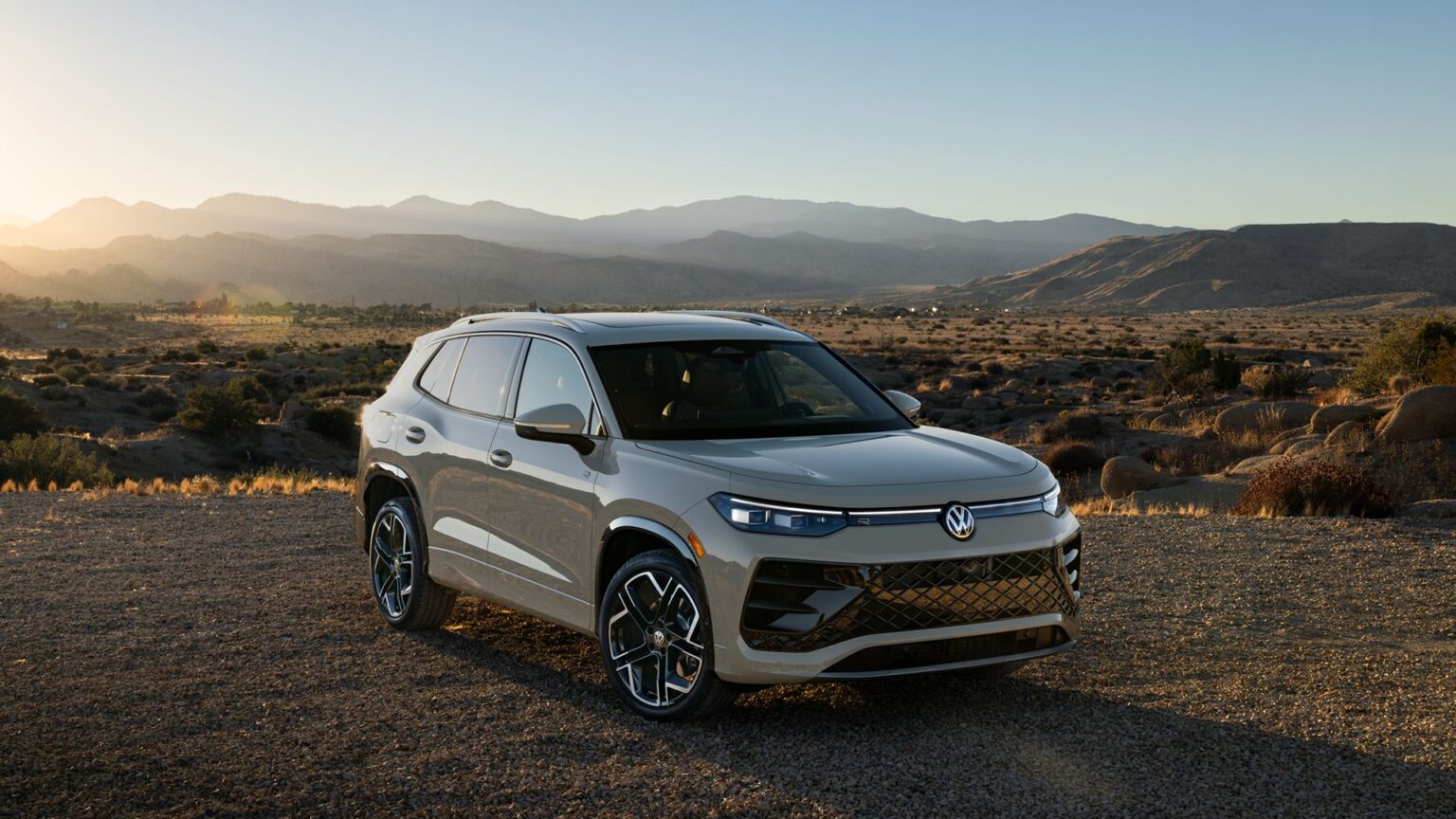Automotive tariffs are happening. The Trump administration imposed a 25 percent levy on all vehicles imported to America. Volkswagen is one of the automakers that may be most exposed. The brand produces its Tiguan and Taos crossovers in Mexico along with the Jetta sedan. Those are three of the brand’s four best-selling cars in America, making up 57 percent of VW’s American sales. All are affordable cars, reliant on hitting a specific price point to sell. VW also imports cars from Europe, including the ID. Buzz and the remaining Golf vehicles.
How will Volkswagen respond to tariffs? A VW memo shared with Automotive News has some details.
Key Takeaways
- Volkswagen is one of the manufacturers most exposed to President Trump’s tariffs
- The Tiguan, Taos, and Jetta are built in Mexico
- Those three vehicles make up 57 percent of VW’s American sales
- VW plans to add “import fees” to affected vehicles
- VW has also instituted a temporary pause on imports to America
How Volkswagen Will Respond To Automotive Tariffs
Volkswagen says it has close to the normal 50–60 days of new vehicle inventory on hand. The brand plans to include an “added import fee” on affected vehicles. A phased roll-out would see those stickers added starting on April 22-23. Vehicles assigned to dealers in early April won’t have the fee added.
The added import fee won’t be uniform. It will vary based on the vehicle and the trim level. Volkswagen has not yet made any final pricing decisions. Retailers will get those decisions in mid-April. VW’s “Deals Day” incentives for April will occur as planned (with less advertising).
Volkswagen Is Also Pausing Vehicle Imports
The report notes that VW has put at least a temporary halt to all vehicle imports to the United States. Rail shipments of vehicles from Mexico have ceased. Cars that arrive in America on ships will be held at port and not be processed and sent to dealers. VW is looking into storing completed vehicles at its Puebla facility in Mexico.
Automotive News said the memo mentioned production at VW’s Chattanooga plant, where it builds the Atlas three-row SUV and ID.4 electric car, would also be affected but did not specify.
TopSpeed’s Take
We’re not surprised to see Volkswagen put things on pause for a bit. We suspect other manufacturers will do the same. The tariff situation remains — to understate matters — very fluid. Decisions automakers would usually have months to prepare for have been dropped on them overnight. The Trump administration is still sorting out how a tariff on automotive parts would be implemented. So manufacturers don’t yet know what cost they face, much less the best way to transfer it to customers. It’s also not clear yet whether these tariffs are the starting point for U.S. trade negotiations or the intended endpoint.
It seems clear that if these tariffs stick, cars will become less affordable, whether with “added import fees” tacked on to the window sticker or manufacturers deciding they can no longer produce more affordable options. And buyers are well aware of what’s happening.
Read the full article here


